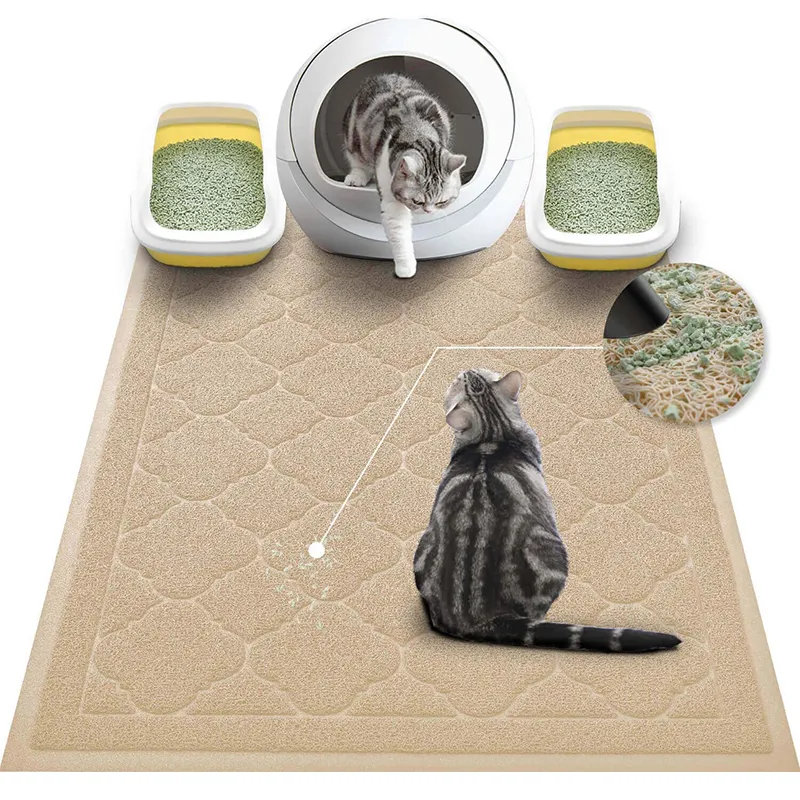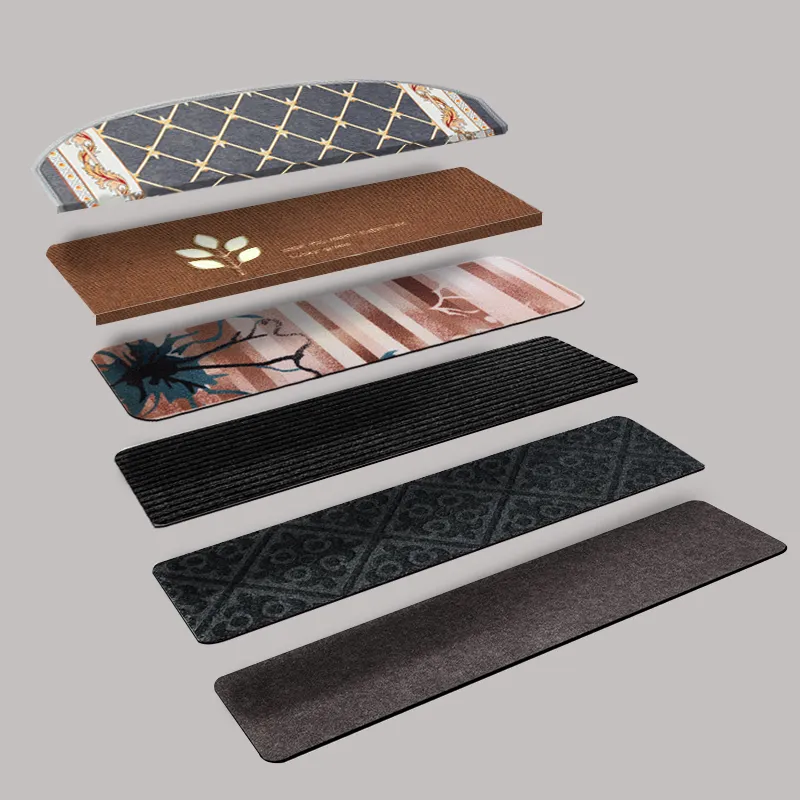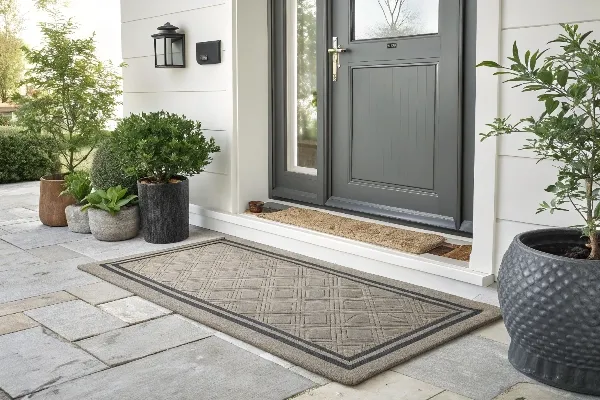Eco-Friendly Carpet: Sustainable Choices for Your Floors and Rugs
Are you considering new flooring but worried about the environmental impact? Eco-friendly carpets offer a perfect blend of style, comfort, and sustainability. This comprehensive guide will help you understand the benefits of choosing sustainable carpets and how they can improve your home and the planet.

Table of Contents
What Makes a Carpet Eco-Friendly?
An eco-friendly carpet is made from natural fibers or recycled materials that are sustainable and environmentally friendly.
Key Features:
- Natural Fiber: Materials like wool, jute, and sisal.
- Recycled Content: Carpets made from recycled plastic or old carpets.
- Low VOCs: Emits fewer volatile organic compounds (VOCs), improving indoor air quality.
- Biodegradable: Breaks down naturally, reducing environmental impact.
By choosing carpets made from renewable resources, you’re supporting sustainability and reducing your carbon footprint.
Why Choose Sustainable Carpets?
Opting for sustainable carpets offers numerous benefits for both your home and the environment.
Environmental Benefits:
- Reduced Waste: Using recycled materials minimizes landfill waste.
- Lower Emissions: Eco-friendly carpets have fewer harmful chemicals, leading to better air quality.
- Conservation of Resources: Utilizing renewable resources lessens the strain on natural habitats.
Personal Benefits:
- Durability: Many sustainable carpets are known for their durability, providing a long-lasting flooring solution.
- Healthier Living Environment: Fewer toxins mean a healthier home for you and your family.
- Aesthetic Appeal: Eco-friendly carpets come in various styles and colors to match any decor.
How Do Eco-Friendly Carpets Improve Indoor Air Quality?
Indoor air quality is crucial for a healthy living space. Eco-friendly carpets contribute positively by:
- Reducing VOCs: Lower levels of volatile organic compounds minimize respiratory issues.
- Natural Air Purification: Some natural fibers like wool can help regulate humidity and purify the air.
- Hypoallergenic Options: Materials like jute and sisal are less likely to trigger allergies.
By improving indoor air quality, you’re creating a safer and more comfortable home environment.
What Are the Best Natural Fiber Carpets?
Choosing carpets made from natural fibers is a great way to embrace sustainability.
Wool Carpet
- Benefits:
- Durability: Naturally resilient, maintaining appearance over time.
- Comfort: Soft underfoot, adding warmth to any room.
- Fire Resistance: Wool is naturally flame-retardant.
- Considerations:
- Cost: Typically higher priced due to quality.
- Maintenance: May require specific cleaning methods.
Jute Rug
- Benefits:
- Eco-Friendly: Made from plant fibers, biodegradable.
- Texture: Provides a rustic, natural look.
- Considerations:
- Durability: Best suited for low-traffic areas.
Sisal Carpet
- Benefits:
- Strength: Highly durable, suitable for high-traffic areas.
- Aesthetic: Neutral tones complement various decor styles.
- Considerations:
- Comfort: Not as soft underfoot as wool.

Alt text: Eco-Friendly Cat Litter Mats
Enhance your home with our Eco-Friendly Cat Litter Mats that combine sustainability with functionality.
Can Synthetic Carpets Be Eco-Friendly?
Yes, synthetic carpets can be eco-friendly when made from recycled materials or designed for sustainability.
Recycled Nylon Carpet
- Benefits:
- Durability: Strong and long-lasting.
- Sustainability: Made from recycled nylon, reducing waste.
- Environmental Impact:
- Reduced Resource Consumption: Less reliance on new raw materials.
- Lower Emissions: Modern manufacturing processes minimize pollutants.
PET Polyester Carpet
- Made From: Recycled plastic bottles.
- Benefits:
- Stain Resistance: Naturally repels stains.
- Softness: Comfortable underfoot.
- Environmental Impact:
- Waste Reduction: Utilizes plastic that might otherwise end up in landfills.
By selecting synthetic carpets with sustainable features, you can enjoy the benefits of modern materials while supporting the environment.
How Does Carpet Recycling Work?
Carpet recycling involves converting old carpets into new products.
Process:
- Collection: Old carpet is collected from homes or businesses.
- Sorting: Carpets are sorted by material type.
- Processing: Materials are broken down into fibers or pellets.
- Manufacturing: Recycled materials are used to create new carpet or other products.
Benefits:
- Waste Reduction: Decreases the amount of carpet in landfills.
- Resource Conservation: Reuses existing materials, saving energy and raw resources.
- Economic Growth: Creates jobs in the recycling and manufacturing industries.
Are Carpet Tiles a Sustainable Option?
Carpet tiles offer a flexible and eco-friendly flooring solution.
Advantages:
- Minimal Waste: Tiles can be purchased to fit exact dimensions, reducing excess.
- Easy Replacement: Damaged tiles can be replaced individually, extending the carpet’s lifespan.
- Recyclable Materials: Many are made from recycled materials and can be recycled again.
Environmental Impact:
- Lower Emissions: Less material production reduces overall emissions.
- Sustainability: Supports a circular economy by promoting recycling.
Tips for Choosing Eco-Friendly Carpets for Your Home
Selecting the right eco-friendly carpet involves considering several factors.
Certification Labels:
- Green Label Plus: Indicates low VOC emissions.
- Cradle to Cradle: Denotes products designed with the environment in mind.
Material Considerations:
- Natural Fibers: Opt for materials like wool, jute, or sisal.
- Recycled Content: Look for carpets made from recycled materials.
Manufacturing Practices:
- Environmental Policies: Choose companies committed to sustainable practices.
- Transparency: Manufacturers should provide information about the production process and materials used.
Personal Needs:
- Lifestyle: Consider durability for high-traffic areas.
- Budget: Sustainable options are available at various price points.
- Aesthetics: Select styles and colors that complement your home.

Alt text: Non-Slip Stair Mats
Ensure safety and sustainability with our Non-Slip Stair Mats crafted from eco-friendly materials.
The Environmental Impact of Traditional Carpets
Traditional carpets often have negative effects on the environment.
Issues:
- High VOCs: Release volatile organic compounds, affecting indoor air.
- Non-Biodegradable: Made from synthetic fibers that don’t decompose.
- Resource Intensive: Production consumes significant energy and raw materials.
By understanding these impacts, you can make informed decisions to opt for eco-friendly options.
How to Care for Your Eco-Friendly Carpet
Proper maintenance extends the life of your sustainable carpet.
Cleaning Tips:
- Regular Vacuuming: Keeps dirt from settling into fibers.
- Spot Cleaning: Use eco-friendly cleaning products for stains.
- Professional Cleaning: Consider services that specialize in eco-friendly carpets.
Protection:
- Use Rugs and Mats: Place in high-traffic areas to reduce wear.
- Rotate Furniture: Prevents indentations and uneven fading.
Proper care not only maintains appearance but also supports the longevity of the carpet, reducing the need for frequent replacement.
Conclusion
Embracing eco-friendly carpets is a step towards a more sustainable lifestyle. From improving indoor air quality to reducing environmental impact, the benefits are numerous. Whether you choose a natural fiber carpet or a synthetic one made from recycled materials, you’re contributing positively to the planet. With a multitude of styles and options available, finding the perfect sustainable carpet for your home has never been easier.
Key Takeaways
- Eco-Friendly Carpets: Made from natural fibers or recycled materials, promoting sustainability.
- Indoor Air Quality: Lower VOCs improve the air you breathe at home.
- Natural Fibers: Options like wool and jute offer both durability and environmental benefits.
- Synthetic Options: Recycled nylon and PET polyester are sustainable synthetic choices.
- Carpet Recycling: Reduces waste and conserves resources.
- Carpet Tiles: Offer a flexible and eco-friendly flooring solution.
- Choosing Wisely: Look for certifications, sustainable materials, and responsible manufacturers.
- Care and Maintenance: Proper care extends the life of your eco-friendly carpet.
For more sustainable home solutions, explore our products:
- Eco-Friendly Stair Mats – Stylish and made from renewable materials.
- Velour Embossed Door Mats – Add elegance with environmentally friendly options.
- Kids Mats – Safe and sustainable choices for your little ones.
Upgrade your home with eco-friendly carpets and enjoy the benefits of a healthier living environment for you and the planet.




